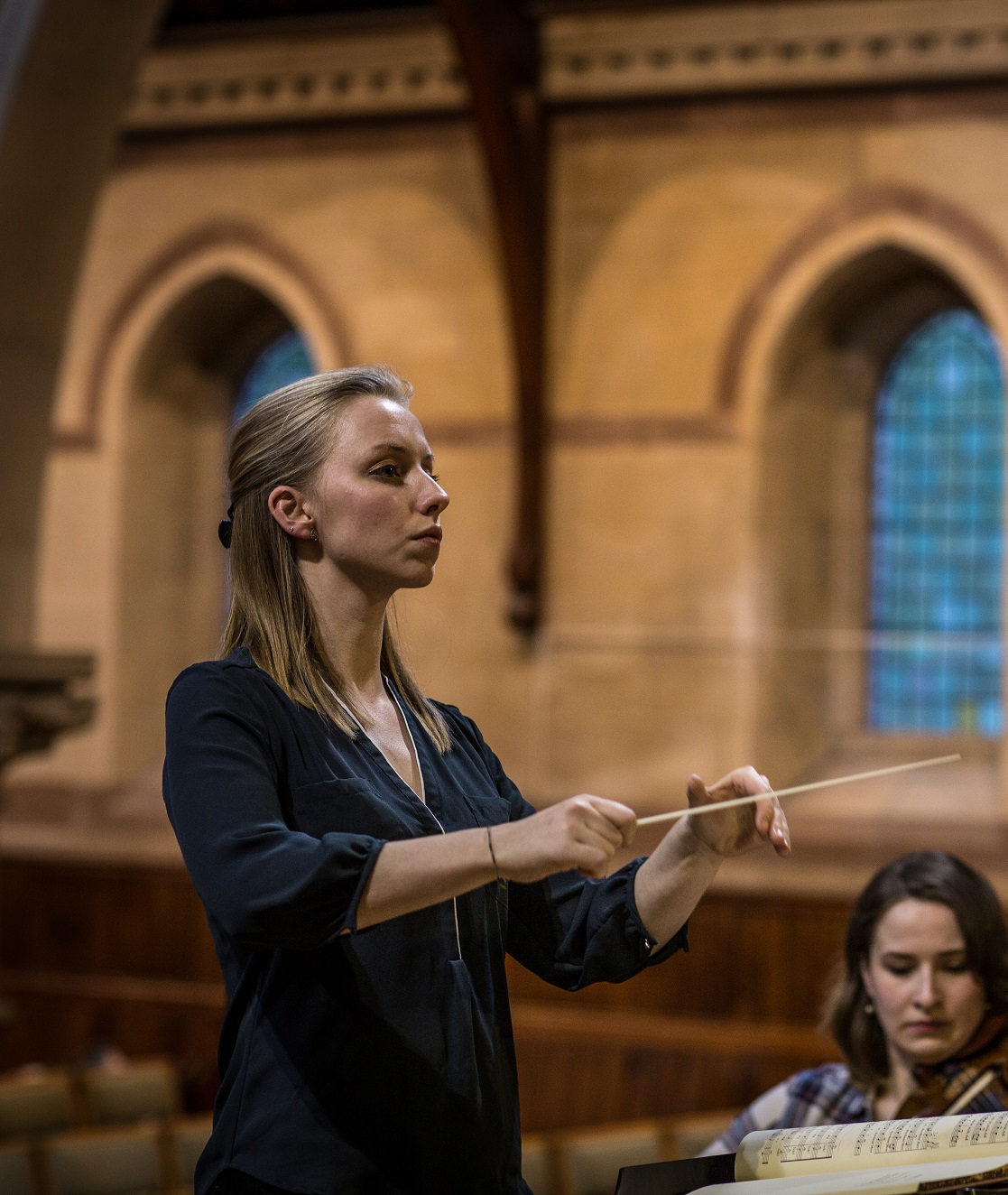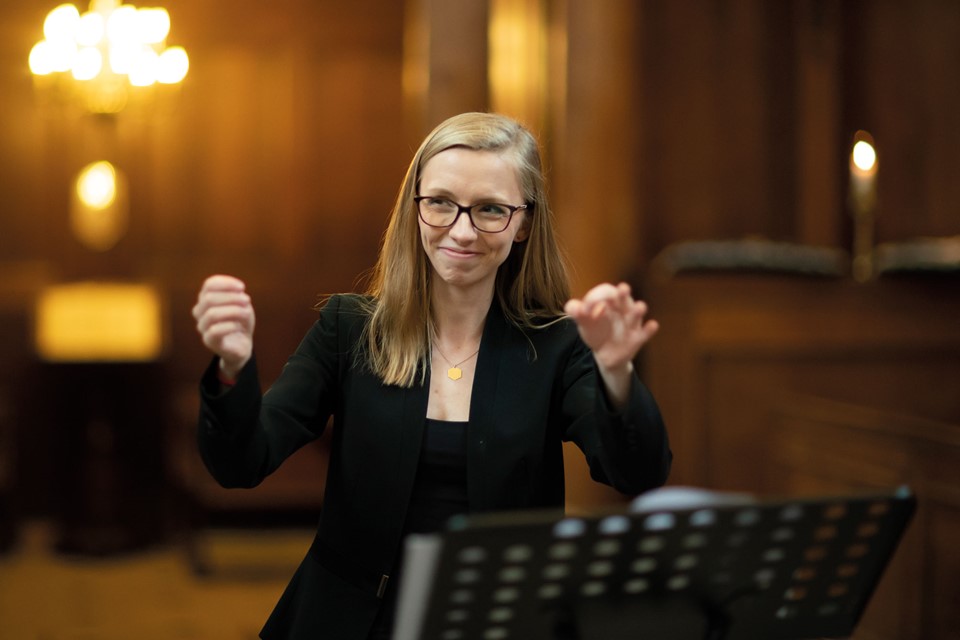It’s 2am and dawn is beginning to break. Not outdoors – London is still dark – but inside the Royal Albert Hall, where, as the cleaning-crew’s hoovers rumble and bin bags rustle, the metallic gleam of first light stirs on the ocean.
Conjuring that light, sending it flickering up to the gallery in dancing arpeggios, is Anna Lapwood, a tiny speck of a figure across the hall at the Grand Organ, playing the first of Benjamin Britten’s Four Sea Interludes. It’s a strange scene, but for Lapwood it’s just another Monday night.
Since she was named associate artist of the Royal Albert Hall last year, the 27-year-old organist has become a star on TikTok. Lapwood regularly shares her overnight practice sessions – midnight to 6am is the only time this busy concert hall is available – with more than a million followers on social media.
“It’s a magical place at night,” she says. “Not scary at all. There are always people around, and they’re great at bringing me tea when they sense I’m flagging a bit. I did once have a nap in a corner when I was particularly tired, but I nearly scared a cleaner to death – they must have thought I was a corpse!”
Propping up her phone next to the organ console during each session, Lapwood captures chance encounters – from tech crews and security staff to Benedict Cumberbatch (“He was standing right next to me as I was playing; I was just thinking ‘Don’t cock it up!’”); requests shouted up at her (Bach, Dr Dre, the theme from Interstellar) – and employs technical tricks, if needed (who knew a pair of pencils wedged into the keyboard could help with a tricky bit of Hans Zimmer – holding keys down to sound bell chimes while Lapwood’s hands and feet are otherwise engaged).
One particularly memorable night-time encounter – with the British DJ and producer Bonobo’s crew – led to an unexpected cameo in the next night’s concert.
A spine-tingling video (below) of Lapwood setting a packed Albert Hall ablaze with enormous organ chords at the height of his set went viral, racking up more than five million views online.
“It was the best concert experience of my life. Everyone in the room was in this trancelike state together. I’m still getting people coming to my concerts because of that one gig.”


